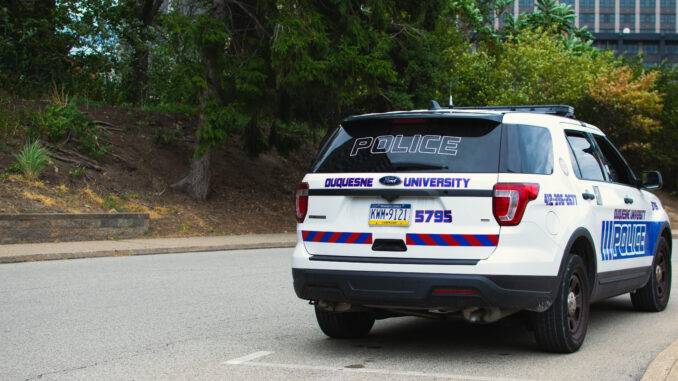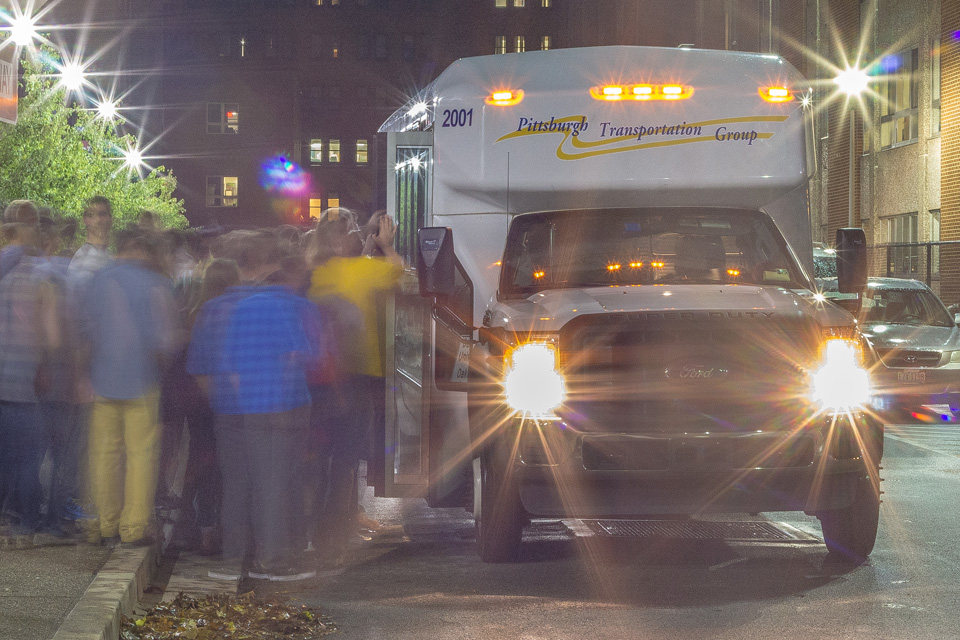
Kellen Stepler | Editor-in-Chief
03/04/2021
Paul Jubas and Max Petrunya, the attorneys for Dannielle Brown, released a statement Sunday confirming that in November, Duquesne turned over its public safety files and video camera footage from her son’s death, and that the university has purchased body-worn cameras for its public safety officers in October.
The statement came after Brown was admitted to UPMC Presbyterian Hospital after suffering complications from her hunger strike Thursday. Feb. 25. It was day 236 of her hunger strike. She posted on Twitter that she was discharged from the hospital March 1.
In their statement, Jubas and Petrunya also wrote that Duquesne’s Office of Public Safety has enhanced their de-escalation training for its officers.
“The university has worked collaboratively with us, as attorneys for Ms. Brown, for the last few months,” the statement from Brown’s attorneys read. “The university agreed to mediation of all issues. Because that process was delayed due to COVID, the university agreed to engage in negotiations with us to resolve this matter. Those discussions have been ongoing for the past few weeks. Duquesne has been acting in good faith and we are hopeful of reaching a resolution soon.”
Brown, mother of Duquesne student-athlete Marquis Jaylen “JB” Brown who died in 2018 after falling from a Brottier Hall window, began her hunger strike July 4 in Freedom Corner in the Hill District. She presented three demands for Duquesne: an independent investigation of her son’s death, mental health de-escalation training and body cameras for university police.
Tom Hart, chief of police and director of public safety, said that Duquesne University Public Safety (DUPS) “conduct[s] training for all officers, security guards and police communication officers at least every three years on this subject, and will continue with this current year 2021 as well,” Hart said.
“Beginning in 2017 through the present, DUPS has sent officers to a week-long training course provided by the City of Pittsburgh Bureau of Police and the Allegheny County Health Department, Crisis Intervention Training (CIT), to better help officers understand and respond to people that are in a mental health crisis,” Hart said. “Due to COVID restrictions this year, this ‘live’ interactive course was no longer offered to our officers, but it is our intention to continue this training once ‘live’ courses will again be offered.”
In January, Hart said that a police supervisor received training for verbal de-escalation, which taught the supervisor “to be an instructor, providing this valuable material to our entire department in the near future.” In the same month, several officers were sent to MPOETC training classes titled “Tactical Communications: The Art of DeEscalation” and “Perception of Danger: Threat Identification and Response.”
Hart also said that in April, the UPMC Western Psychiatric Hospital, Senior Crisis TrainerCrisis Training Institute will present a course titled Comprehensive Crisis Management, which will help employees to assess whether a potentially dangerous situation is developing and how to prevent a crisis.



